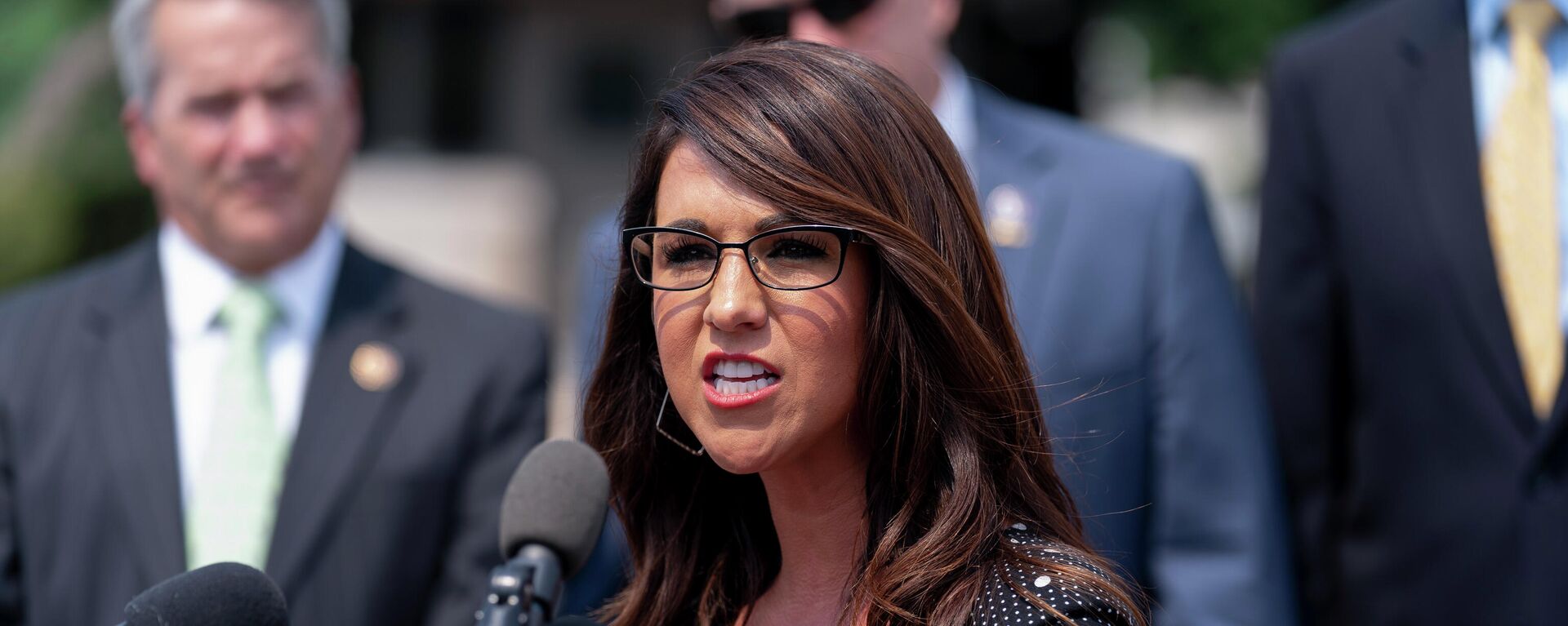GOP Dissident Faction Member Gaetz Pushes Jim Jordan to Challenge McCarthy in House Speaker Race

© AP Photo / J. Scott Applewhite
Subscribe
With just days left to secure a majority of votes, US Rep. Kevin McCarthy (R-CA) is rapidly running out of time to finalize his bid to become the next speaker of the US House of Representatives. A small group of GOP lawmakers has proven a potent obstacle, demanding concessions from McCarthy in exchange for their support.
Poking the hornet’s nest yet another time, US Rep. Matt Gaetz (R-FL) urged Rep. Jim Jordan (R-OH) to run against McCarthy in the race to become House speaker, the leader of the lower chamber of Congress and third in the line of presidential succession, after the vice president.
“All I want for Christmas is @Jim_Jordan to realize he should be Speaker of the House!” Gaetz tweeted on Saturday, which was Christmas Eve in Western Christianity.
All I want for Christmas is @Jim_Jordan to realize he should be Speaker of the House!
— Matt Gaetz (@mattgaetz) December 24, 2022
Jordan is a co-founder and leader of the Freedom Caucus, a small-but-vocal ultra-conservative faction of House Republicans that grew out of the Tea Party movement and enthusiastically supported former US President Donald Trump. While its roster is not fully known, the Freedom Caucus is believed to comprise about 20% of the GOP’s House membership.
The Freedom Caucus previously torpedoed the 2015 drive for the Speaker’s seat by McCarthy, a longtime opponent of the group, eventually supporting winner Rep. Paul Ryan (R-WI) for the position.
Not all of the caucus has rebelled against McCarthy’s push this time around, though. Rather, just five House Republicans have explicitly said or strongly implied they will not vote for McCarthy, with several others basing their support for him on extracting pledges to change certain rules or commit to certain policy priorities.
The GOP’s majority is extremely slim, with 222 Republican seats; McCarthy (or Jordan) needs 218 to win if all members are present and vote, meaning just four dissidents is all it would take to foul his chances.
For a century, selection of the House speaker has been a foregone conclusion. Only 14 times since Congress was formed in 1789 has the speaker vote gone to a second ballot, with the most recent being Rep. Frederick Gillet (R-MA) in 1923, which took nine rounds of voting.
McCarthy is already being opposed by another Freedom Caucus member, Rep. Andy Biggs (R-AZ), who enjoys little support among Republicans. Biggs, Gaetz, and Reps. Ralph Norman (R-SC), Matt Rosendale (R-MT), and Bob Good (R-VA) are the five lawmakers explicitly against McCarthy as speaker.
Others, including Reps. Scott Perry (R-PA) and Lauren Boebert (R-CO), have said they would only support McCarthy if the ability of individual members to bring a “motion to vacate the chair” is restored. The rule was restricted in 2019 to being filed only by a majority vote of the caucus, after the threat of such a motion led to the ouster of House Speaker John Boehner (R-OH) in 2015.
Other demands include requiring a 72-hour window between the release of a bill's final text and a vote in the full chamber, and that the House should block bills by Republican senators who voted for the $1.7 trillion omnibus spending bill recently passed by Congress. McCarthy railed against the bill last week, which was passed with a majority of House lawmakers voting by proxy - a practice he says he will end if elected as speaker.


